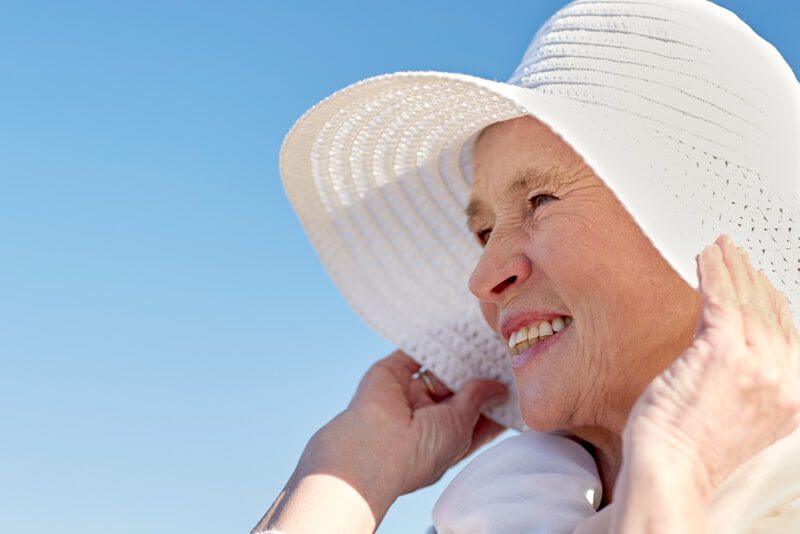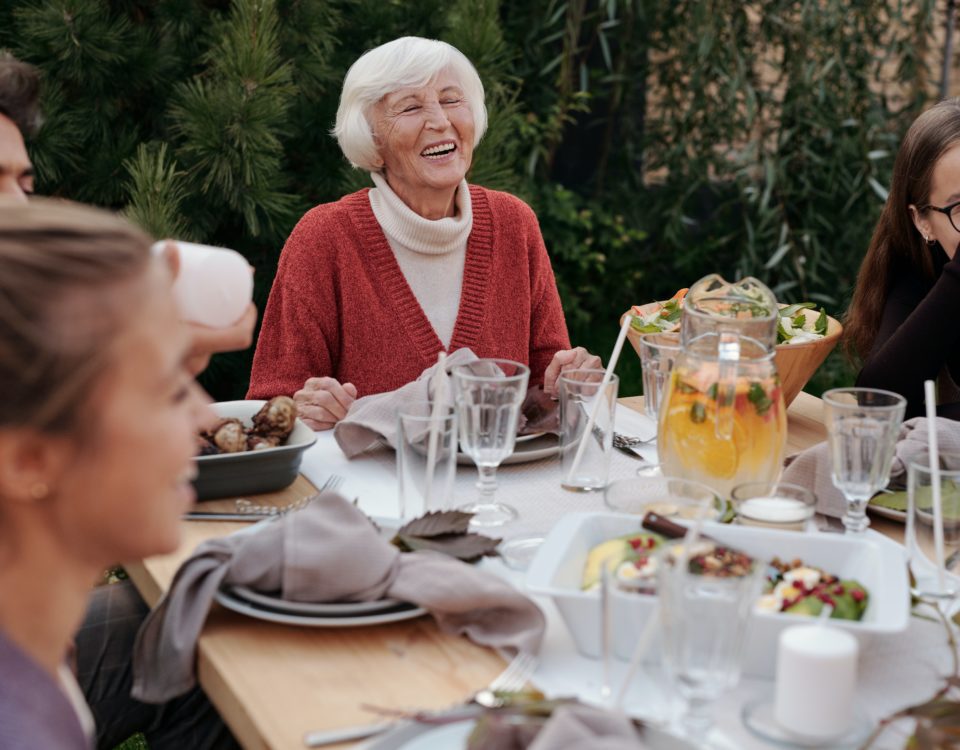You can’t always be there. But we can.
Protect Yourself During the Hot Summer Months

Heatstroke Prevention for Elderly Loved Ones
July 10, 2017
How to Make Nutritional Smoothies for Aging Loved Ones
July 17, 2017Protect Yourself During the Hot Summer Months
There’s nothing wrong with going outdoors to get some sunlight once in a while. In fact, now is the perfect time of year to go to the beach for relaxation and fun under the sun.
 But if you and your senior loved one would be staying outdoors for extended periods especially during the summer months then protection is an absolute must.
But if you and your senior loved one would be staying outdoors for extended periods especially during the summer months then protection is an absolute must.
Sunlight is good for our health if we do not get too much exposure from it.
In case you did not know, the sun gives off not only visible light but also invisible radiation in the form of UV rays also known as ultraviolet rays. UV rays can be beneficial if absorbed in moderate dosages. Ultraviolet rays aid in increased vitamin D levels and enhanced mood during 6 minutes of exposure to sunlight during summer.
The bad part is getting too much of it may lead to skin cancers such as:
Basal Cell Carcinoma – These may appear as small shiny bumps on the nose or other parts of the face. Curable when detected early.
Squamous Cell Carcinoma – These may appear as red dome-shaped bumps or scaly patches on either the head, neck, ears, lips, arms, legs, and hands that bleed easily when scraped. Also curable when detected early.
Melanoma – This is the most dangerous type of skin cancer as it has caused the most deaths since they spread fast if undetected and untreated. They appear in the form of abnormal, ugly-looking growths that start as moles and begin to show on the chest and back for men and on the legs for women.
Since UV rays are invisible to the naked eye, prolonged exposure without protection can also lead to the eye diseases such as:
Cataract – Like cameras, the eyes have lenses that adjust the eye’s focus. This type of eye disorder clouds the lens of the eye causing blurry or faded vision. It can be treatable but currently only through surgery.
Growths in the eye such as Pterygium – On each of our eyes lie a clear protective tissue that covers our eyeball called conjunctiva. Pterygium, also known as “Surfer’s Eye” is a growth of pink, fleshy tissue on the conjunctiva that forms starting in the area closest to the nose expanding towards the pupil area. Like cataract, this also causes blurry vision and may require surgery for treatment.
Who is most susceptible to skin cancers and eye diseases from excessive UV exposure?
– People with light-colored skin, hair, and eyes
– Those who spend a lot of time under the sun.
– Mostly those who are over 50 years old.
The good part is with adequate protection, you and your senior loved one can still stay under the sun for longer periods.
Below are some tips to get shielded from the dangers of excessive UV rays.
– Make sure to wear sunscreen. Sunscreen with an SPF (sun protection factor) 15 or higher works best.
– Wear long-sleeved shirts and long pants if possible. The best kinds of clothing that can protect you from excessive UV exposure are ones with tightly woven fabric and have darker colors.
– Wear hats with brims all the way around to shade your face, ears and the back of your neck. Hats with tightly woven fabric (that doesn’t allow sunlight through) and with darker colors offer better protection.
– Stay in the shade most especially during noontime.
– Wear sunglasses that can block UV rays. Wrap-around sunglasses offer more protection to even block UV from the sides.
Sources: cdc.gov, webmd.com, cancer.org, livescience.com, aao.org, nih.gov, who.int, skincancer.org, medlineplus.gov
Disclaimer: 1Heart Caregiver Services Blog may contain articles about health care and medical related topics. However, no warranty is made that any of the articles are accurate. There is absolutely no assurance that any statement contained or cited in any or our articles touching on health care or medical related matters is correct, true, up-to-date or, precise, If any of the statements we mentioned about healthcare or medicine is accurate, it may or may not apply to you or your symptoms.
The health care or medical information provided on 1Heart Caregiver Services is, at best, of a general nature and cannot replace the advise of a health care/medical professional. 1Heart Caregiver Services will not take responsibility for the results or consequences in attempting to use or adopt any information presented in its blog article.

